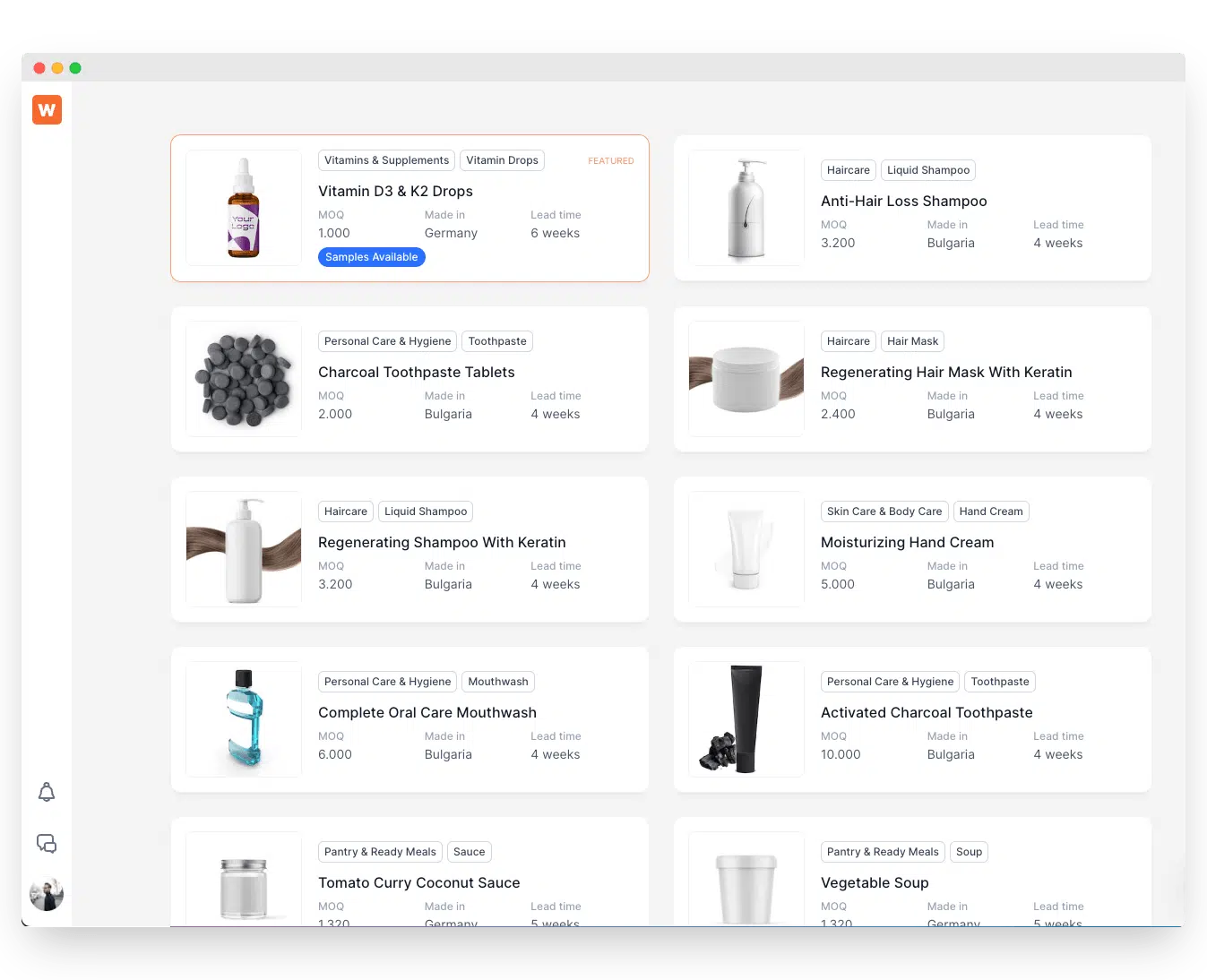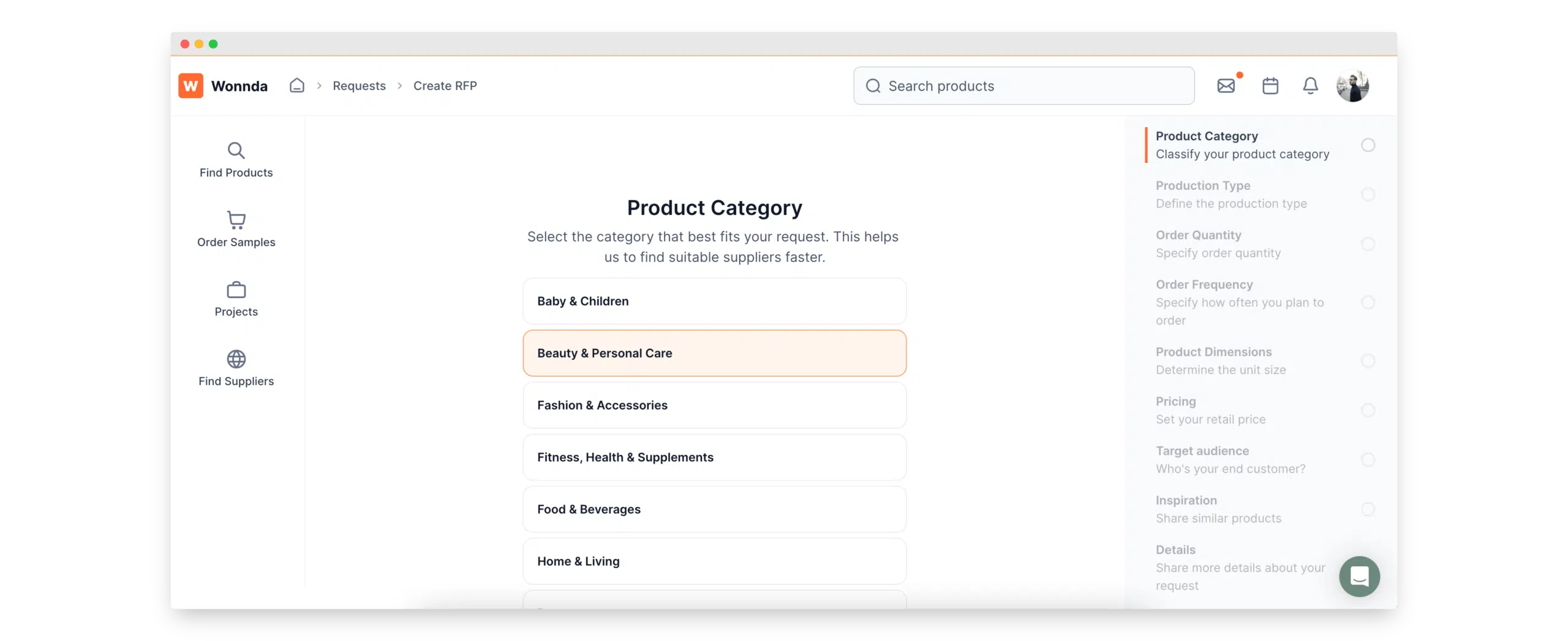The Leading Consumer Goods Manufacturing Platform 🧡
Source, manage & scale your product line
- Source from 20.000+ trusted suppliers
- Browse 600+ product categories across FMCG
- Get inspired by 5.000+ private label product ideas
- Access private label and custom manufacturing solutions









Leading brands and retailers you know and trust operate on Wonnda





What is Wonnda?
The first consumer goods manufacturing platform of its kind
Find and manage suppliers in more than 600+ categories in the FMCG industry - private label or custom manufacturing
- Discovery: Get inspired by thousands of different product ideas & send requests directly
- Supplier Sourcing: Find the right suppliers for your brand via Wonnda's extensive directory
- Smart Tenders: Send one request and get multiple quotes from our supplier network
- Single Source of Truth: Collaborate with all internal and external stakeholders centrally
Sign up in less than 5 minutes. No credit card required.
Product Manufacturing Categories
Scale your product line across multiple FMCG categories
€100M+ manufacturing projects run on Wonnda
The next-generation match-making platform used by world-leading brands and retailers to get matched with the right manufacturing partners and suppliers.
Manufacturing Types
Choose the manufacturing solution that meets your needs
From launching white label products fast, to having your custom product developed and manufactured
White Label Manufacturers
Fully-developed products, white-labeled under your own brand
Product sourcing as it should be
Your unfair advantage with Wonnda
Access 20.000+ premium suppliers from one spot
Access our extensive supplier network whenever needed
A single source of truth for your sourcing
Streamlined communication from contact to contract.
Save 400+ sourcing and admin hours per year
Leverage the full digital sourcing power of Wonnda.
Better prices and increased margins
Get and compare multiple offers. Choose the best option.
Trustpilot review
Wonnda offers a wide array of manufacturers and suppliers, especially in Europe, that meet our standards for quality and reliability.
- David T.
Private label buyer from Austria
Who uses Wonnda?
Suitable for brands and buyers of any size
Wonnda fits your use case, from new brands, to scaling brands to large scale retailers.
New Brands
Launch your first consumer product with us and sell it directly to your audience.
Discover 5.000+ White and Private Label Products
Get multiple quotes from our vetted supplier base
Opt for a Direct Request to instantly connect with specific suppliers, or submit a single request that gets broadcasted as an RFP (Request for proposal) to multiple suppliers. Either way, streamline your sourcing process, save time, and secure the best deals—all in one place.
An efficient workflow tool - streamline your sourcing process from discovery to transaction
Streamline teamwork and project management with our integrated chat & project collaboration tool. Stay connected, share files, and source more efficiently. Keep projects organized, track progress, and effortlessly engage stakeholders with a clear overview of milestones and tasks. Boost productivity and ensure smooth project execution.





